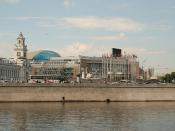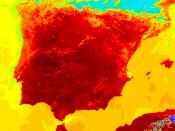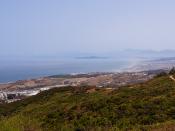Late in the fifteenth century, changes began to arise in Europe. The public began to demand more after numerous brief brushes with the exotics lands of the Orient. Society had begun to unite, prompting nation states ruled by a solitary monarch to appear. This demand for goods as well as the control needed to carry out the necessary operations led to an age of exploration, conquest, and discovery.
Trade was the catalyst by which this new age blossomed. While the merchant class lusted for new markets and more convenient means of distribution, the demand for foreign goods radically grew. With this demand came a rise in prices that drove adventurous entrepreneurs in search of efficient sea routes to suppliers, namely India and the Orient. The tremendous profits soon drew the attention of European monarchs.
As the fifteenth century drew to a close, a strong Europe emerged. No longer did small towns function autonomously under a feudalistic reign.
Centralized states of formidable area and wealth took hold as time passed. These organized states were oft run under a single kind who held the control of the nation with an iron grip. With a word the king could set forth expeditions, break local laws, or rule over natives of a foreign land in tyranny; all with no contest. As these masters of men procured a taste for wealth, it all but commanded them to search for more. At the time, foreign trade brought in mounds of profit and rich new products, so adding to the addiction already plaguing them.
Of course these expeditions were costly, insecure ventures. The expansive territory spawned gigantic trade routes that might require months to traverse. In a bout of logical progression, the idea of most appealing sea routes developed. However, the scientific world was tense...


